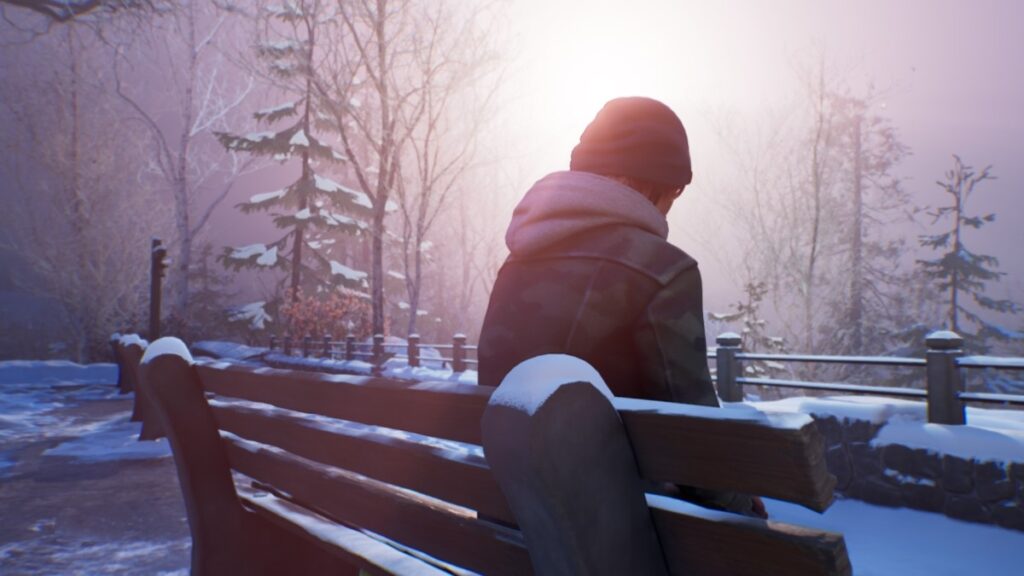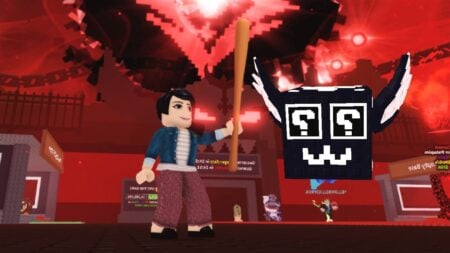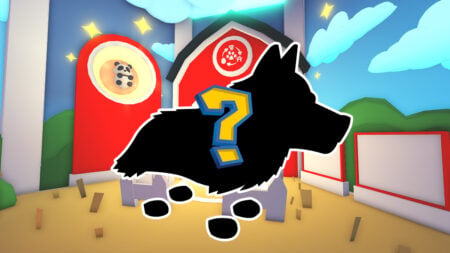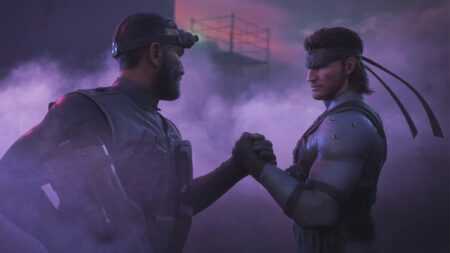I got a chance to sit down for an interview with the team behind Life Is Strange: Double Exposure, including Jon Stauder (Game Director), Felice Kuan (Narrative Director), and Hannah Telle (the voice of Max). I’m an unabashed fan of the franchise‘s newest adventure, and the team didn’t disappoint. We talked superheroes, empathy, acting, and art under capitalism, as well as rediscovering Max Caulfield after years away. In all, it was a journey as illuminating as you’d expect from the creative minds behind one of the year’s most thoughtful games. Here’s what the team at Deck Nine Games had to say.
Double Exposure Interview
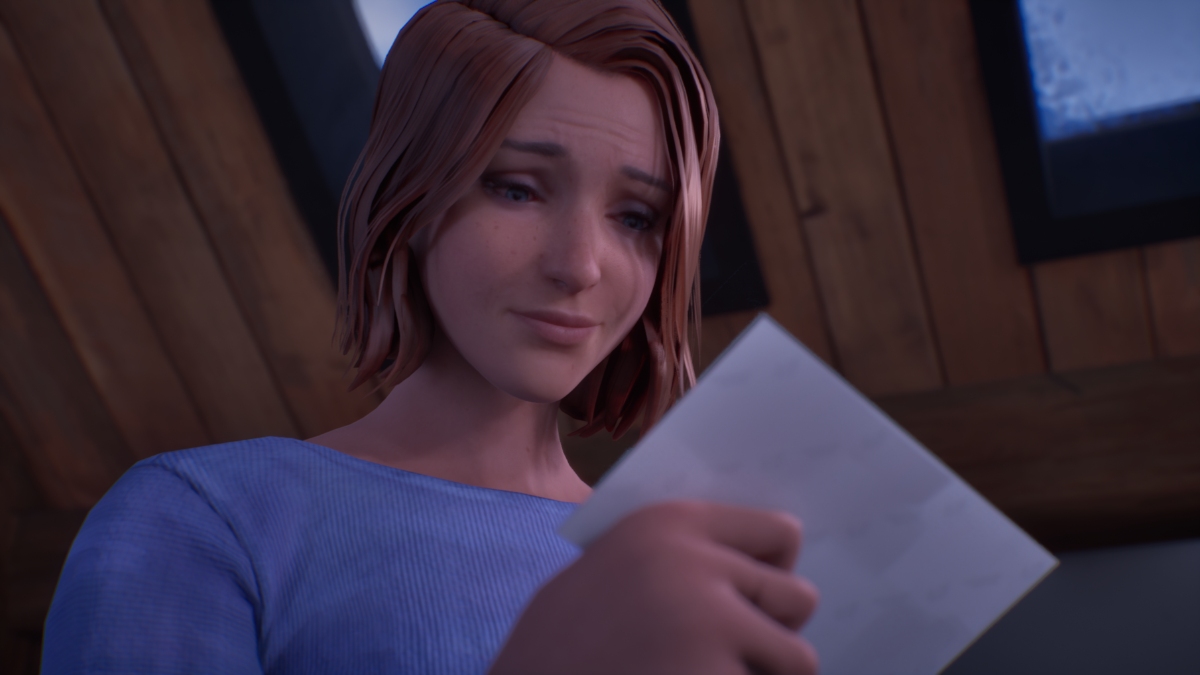
Patrick Armstrong, Staff Writer for The Nerd Stash: The chemistry between the voice actors is so strong that I want to believe that everyone has met and are just IRL besties. Assuming that’s not the case, what did you do as a team to get that chemistry on screen?
Jon Stauder (Game Director): I think 99% of the time it’s the actors in the room acting off of one another, because everybody in the cast not only did the voice but the full head-to-toe performance capture. So that’s Hannah in the room with Blu [Moses] and Olivia [Safi], everybody bouncing off one another in the room at the same time. [….]
Patrick: In Life is Strange, having superpowers doesn’t make you a superhero, at least in the conventional sense. The narrative feels careful to always frame Max as a person with powers, not a traditional superhero with all the baggage that would entail. Why is that approach so important to the game and its narrative?
Felice Kuan (Narrative Director): I think that it’s not just important; I think it is the defining feature of the series. [E]very single supernatural aspect has some metaphorical resonance with real-life struggles, real-life dilemmas that can be valuable to the player. Like, I adore a narrative game anyway, but one that I then feel in my own life is even more valuable. I think that this franchise in particular always strives to do that.
Jon: Yeah, I think it’s a pillar essentially of the franchise for us, that it’s “people over powers” every time out. And I think that’s something also to keep in mind in context of the fact that it took so long to get a second powered person into the game at the same time as the protagonist. [E]ven with some of the things it seems like maybe the end of the game is setting up it still always comes back to “people over powers.” A real human story, where the powers are […] a way to express […] mechanically a character’s arc and how they’re going to evolve as a person as opposed to just simply making dialogue choices[.]
Felice: I know that there has been reasonable concern that what the teaser at the end is setting up is more of like a superhero’s setup, and I want to emphasize that what Safi’s looking for when she says “people like us” […] is a desire for companionship. That is the extension of the fact that until she met Max she felt completely alone. And she felt that, you know, the rules of the world were hurting her. She didn’t know how to deal with that.
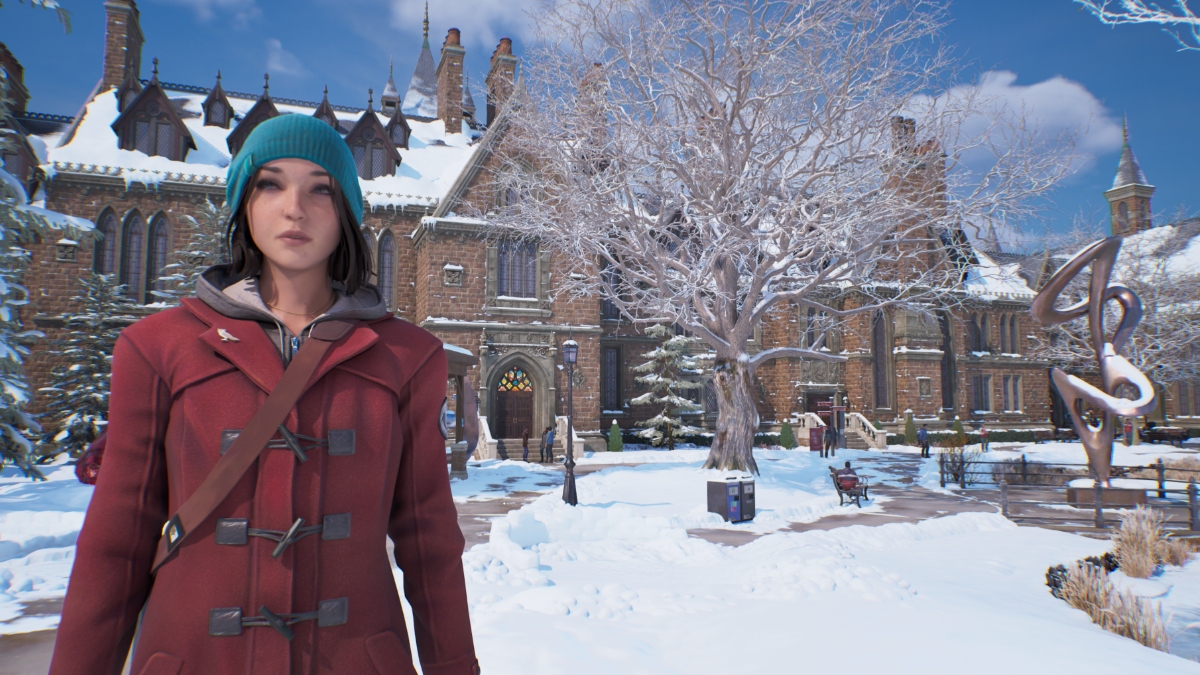
Patrick: What was the process of finding the voice and the style of Max like? Like from a performance and characterization perspective, what was that journey? Because I imagine with a hundred different performers it would go in a hundred different directions.
Jon: I think for our end, like first bringing Hannah back and then trying to determine […] what had Max gone through in the 10 years between the two games, how that would influence her […]. Then bringing Hannah in, going through a variety of scripts and scenes and scenarios until we […] found that more mature voice. And it really was a process Hannah had to come in and start. We had to start working with her in order to understand how to write and work best for her.
And so at that point I would say like that was a very collaborative process. I don’t know how much Hannah even realizes it was a collaborative process because she’d come here to Colorado, say a bunch of stuff, [and then] go away for a bit. We would try a bunch of new things. We would try it again. So we kind of found that Max […] over the course of filming the whole game. [….Max is] not a kind of victim of fate or circumstance this time around. As often as possible, she’s driving the scene forward.
Hannah Telle (voice of Max): I would just say that emphasizing her agency and her need to fully embody her position as a photographer, artist-in-residence, and a position of influence to kids is really meaningful to her. Because obviously in her past she had some issues with her teachers. That didn’t turn out to be the kind of mentorship she wanted. So I think that she takes it really seriously. I think that together we figured out a way to kind of make her have that sense of agency and be a stronger version, more mature version of herself, but still have that same thoughtful and considerate introspective personality.
Patrick: Do you have a moment (without any big spoilers) that to you just feels kind of quintessential Max? That you would point to as a moment in the story where you’re like, “That is as close as we can come to kind of the core of this character and how she moves through the world?”
Hannah: There’s a point where Alderman is really skeptical of Max and thinking that he’s figuring her out. He knows that there’s something unusual about her that ties her to both the crime with Safi and […] Arcadia Bay, and he says to her “All this death and destruction, it always leads back to you. Why is that?” And she says, “That’s not true.”
But in that statement, she also knows that it is a little bit true. She has this dichotomy of feelings, [f]eeling like she can make a big difference and help, [but] at the same time, she’s also harming and causing trouble with, you know, [the] space-time continuum. And she’s just constantly torn between “Am I a helper or a hurter?” or, you know, “What am I doing here? Why me? And how can I best harness this for good?”
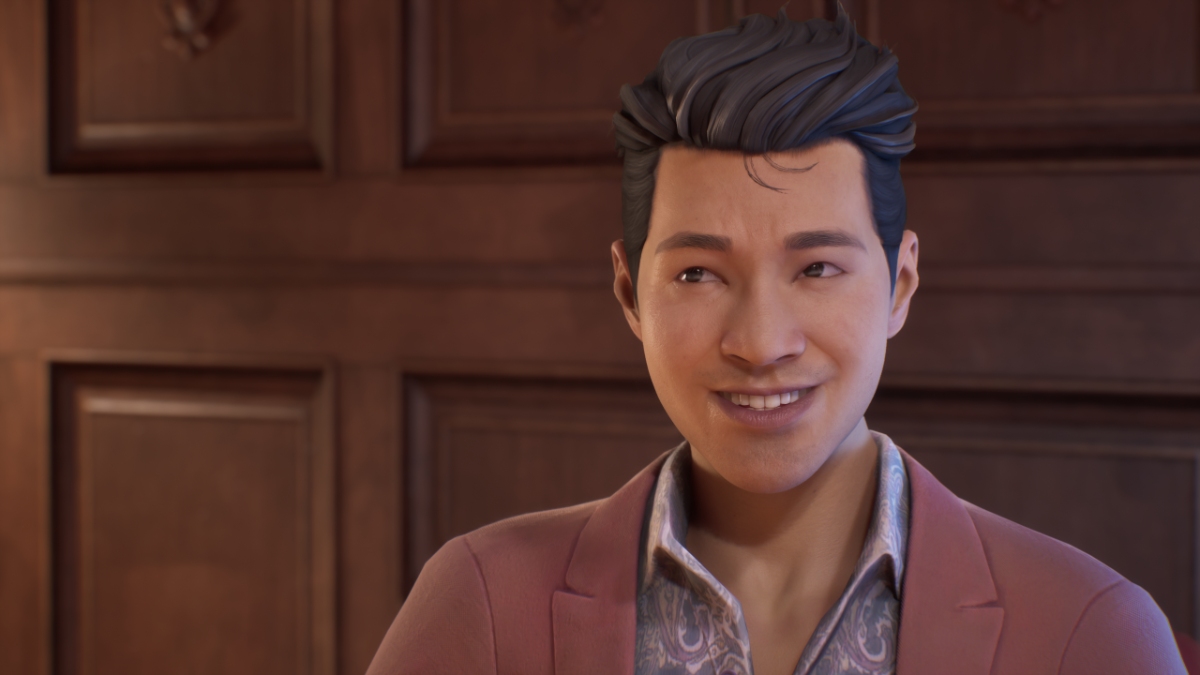
Patrick: That touches on something else I’ve been thinking about a lot […] which is that empathy is as core to the project as any single mechanic or moment. Specifically, one of my favorite small moments revolves around (during my playthrough) Max choosing to recap a marker and put it down, instead of writing something on Safi’s memorial board. It’s a rare video game moment where not doing something is a profound kind of doing in itself. How did that moment or moments like that come together during development?
Felice: I think that [the writers and other team members] are all tasked […] to kind of find the pieces of ourselves that we intersected with and bring that to the game. I know that many of the folks on our team have experienced grief and loss, or paralysis of decision, or feeling helpless. And so, we all look for those things that feel very real, however small, and bring that to the page. [….]
There is a choice in Before the Storm which is “kiss somebody or don’t kiss somebody” or [it] might be like “share your earbuds with Rachel or don’t.” And by and large, we like our choices to be more evenly distributed, but then there are choices that everybody is going to pick either kiss or share your earbuds. Because what kind of mean person is going to keep it to themselves? But those choices we nonetheless still believe have value there. Because just [by] you participating in “do the thing versus not do the thing” you have made it part of your experience, and it’s meaningful for you, and that’s what we’re here for. [….]
Patrick: It’s easy to get discouraged during a process as time-consuming and complicated as game development. Can you talk about how you dealt with the problems that inevitably arose during the dev process?
Jon: Yeah, I mean, just healthy habits outside of the job, being able to go for a jog and whatnot. Sometimes it’s just the best answer. Most of the problems we’re going to [deal with], the solution for it is just time. [….] It’s okay to say in the moment “I’m not sure what we’re going to do next or how we’re going to fix it, but I have faith that we will.” I also think continually seeing progress, even if it is — especially, actually — if it’s hard-fought progress is always a morale boost. [….] A great example is the scene between Max and Safi in the Snapping Turtle, second chapter, where they’re just sitting there. It’s where we make the Chloe decision.
The first time we showed that to the team, […] everybody just lost their minds at how well Hannah and Olivia were playing off one another, and how good that scene felt, even in its like first or second cut of the cinematics. [….] Games are hard. They don’t want to be made. It’s a constant process of dragging […] the project forward. Because it’s going to fight you every step of the way until it’s finally done.
Felice: I feel very lucky because I have been with Deck Nine since Before the Storm. And so I have been able to see that this particular fanbase is extremely loving, and that there is an audience for what we’re doing that really appreciates [it]. We’ve seen Tweets, we’ve gotten like gifts from folks, we’ve gotten letters that say “This changed my life” or […] “I played this with someone very important to me before I lost them.” So, I think, knowing that even one person might play this game and feel that it really helped them is pretty important throughout the whole development process.
Hannah: Wow, yeah, I would just echo both of those things and say that when you’re working on a video game and in the middle of filming it, it’s a lifestyle. You have to be really dedicated to preparing, sleeping, eating right, [and] taking care of yourself. Everything to make sure that you can give your all for the 10-hour day on set. [….] [A]lso I just want to piggyback off what Felice said. What we’re doing is going to live on and endure, and it’s going to matter to someone. That’s a very important sentiment that I think is in the back of all of our minds all the time, [w]anting to make sure that we put everything we have into it.
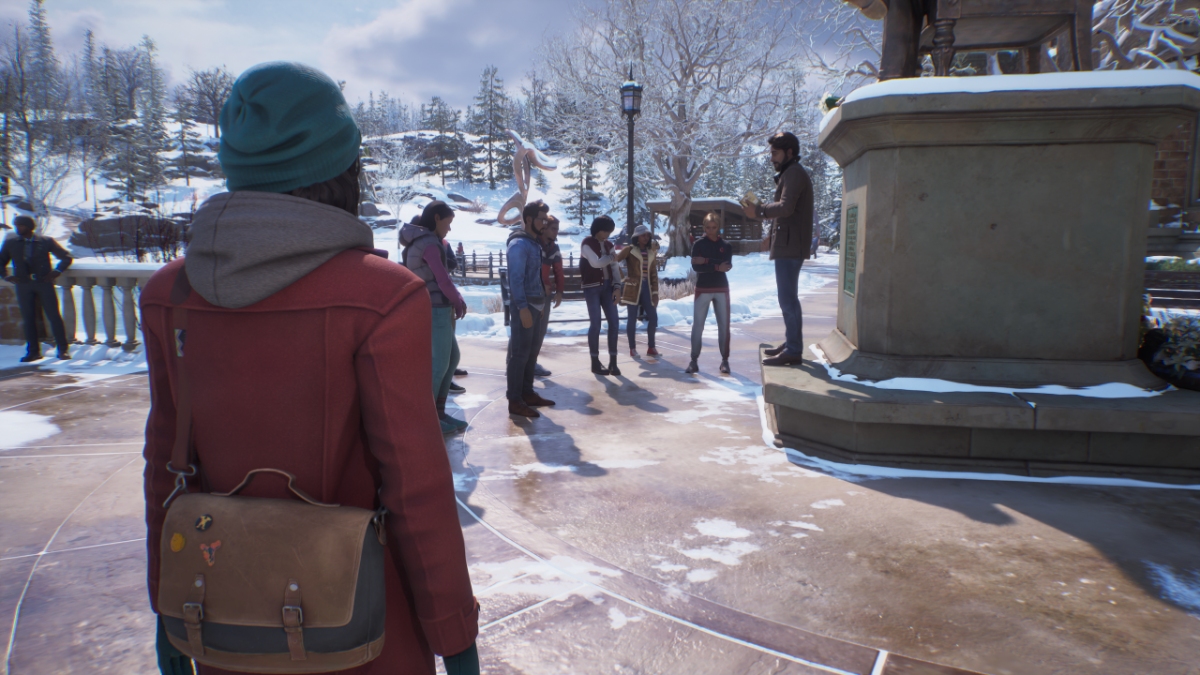
Patrick: Premium editions, DLC, and other paid expansions are increasingly the norm in the gaming industry. Double exposure is at the very least a game that’s interested in exploring leftist or liberal ideas through Max and her friends. How do you approach creating art under capitalism?
Felice: You nailed it. [….] I can only speak for myself. But there are things that may be outside of art, like when authors [say] “I hate having to do Tweets about myself, but it’s part of the business, and you just have to.” There are aspects of artistic creation that I couldn’t do if I didn’t know that the folks I was working with were in the same headspace of “we’re doing this because the product that we’re making is of emotional and moral value to an audience.” And that they are just as sincere […] in trying to bring something of genuine good into the world. That’s how I do it for myself.
Jon: [T]o be fair, in our case, […] we have the luxury here [of] working with this particular franchise, and then it’s other people’s job to figure out how to make money off of it. So we’re going to do the best we can to create something that honors everything the franchise stands for, that folks hopefully want to get out of one of these experiences, without betraying necessarily what came before.
And then we have opportunities to do things like [the] cat DLC and the extra outfits and whatnot. That’s an opportunity to do more and expand what we’re already doing in the story: […] that’s a whole separate budget that comes in addition to the main game. So it’s an opportunity to […] enhance what’s already there. And so when we have those opportunities and [they] still feed back into the [game]…It’s got to be what we consider a solid installment in [the] franchise. And then people above our pay grade figure out how to sell it.

